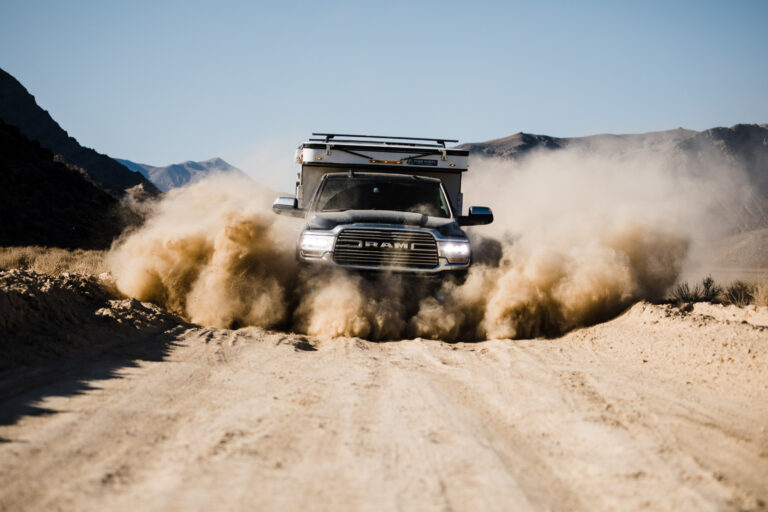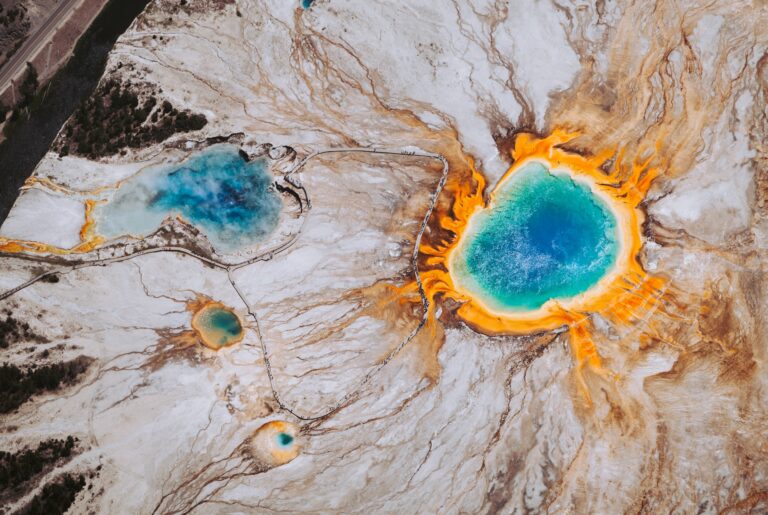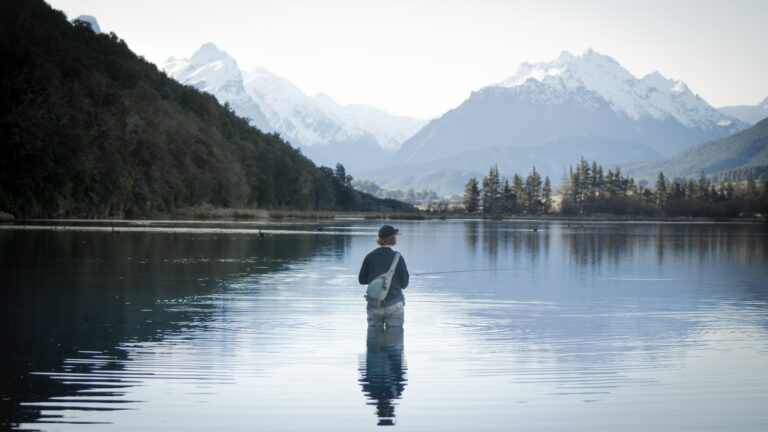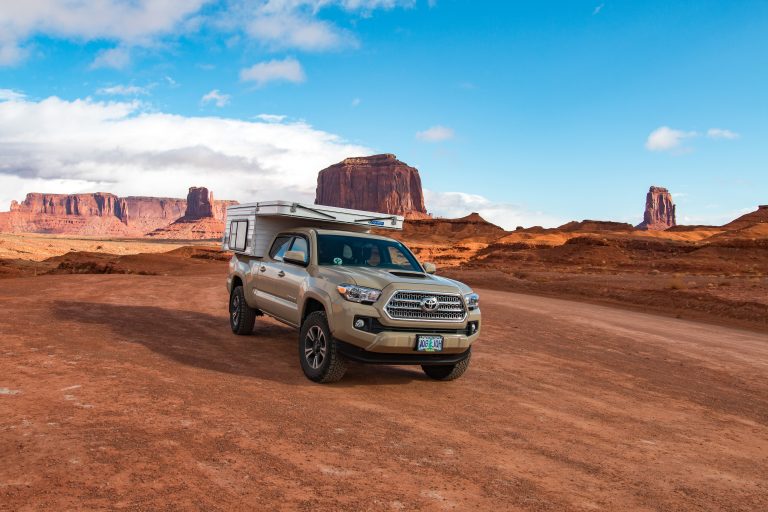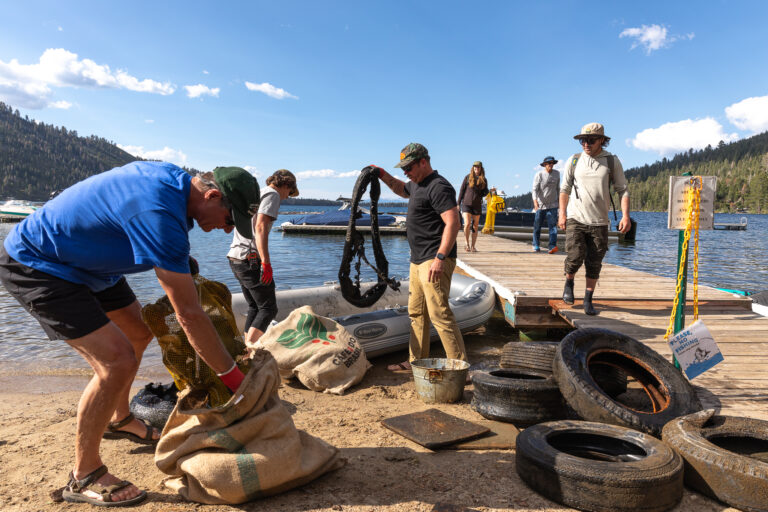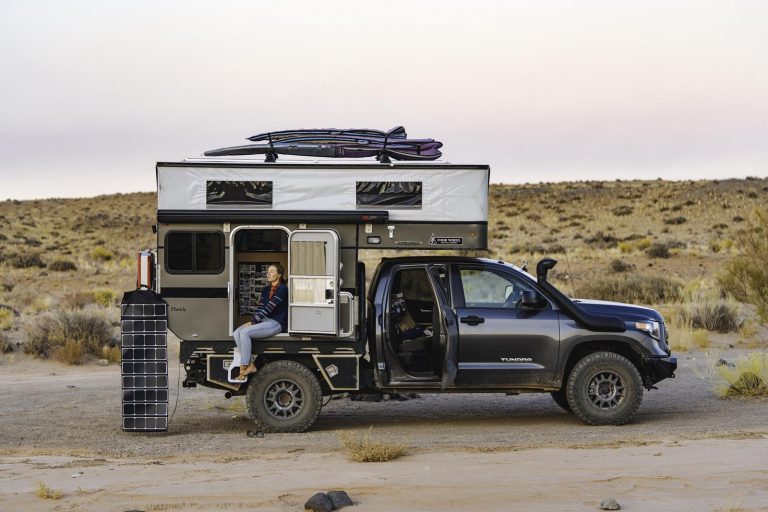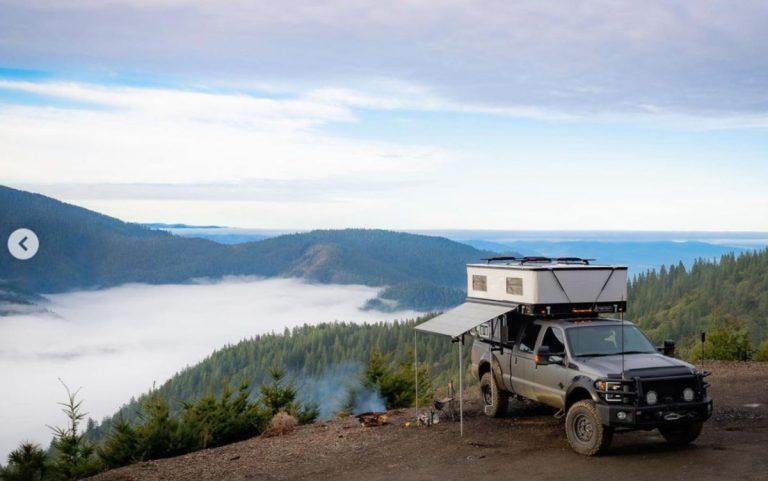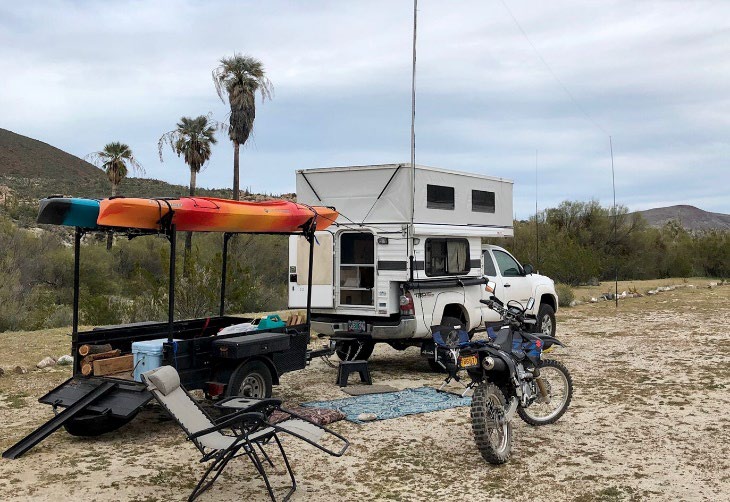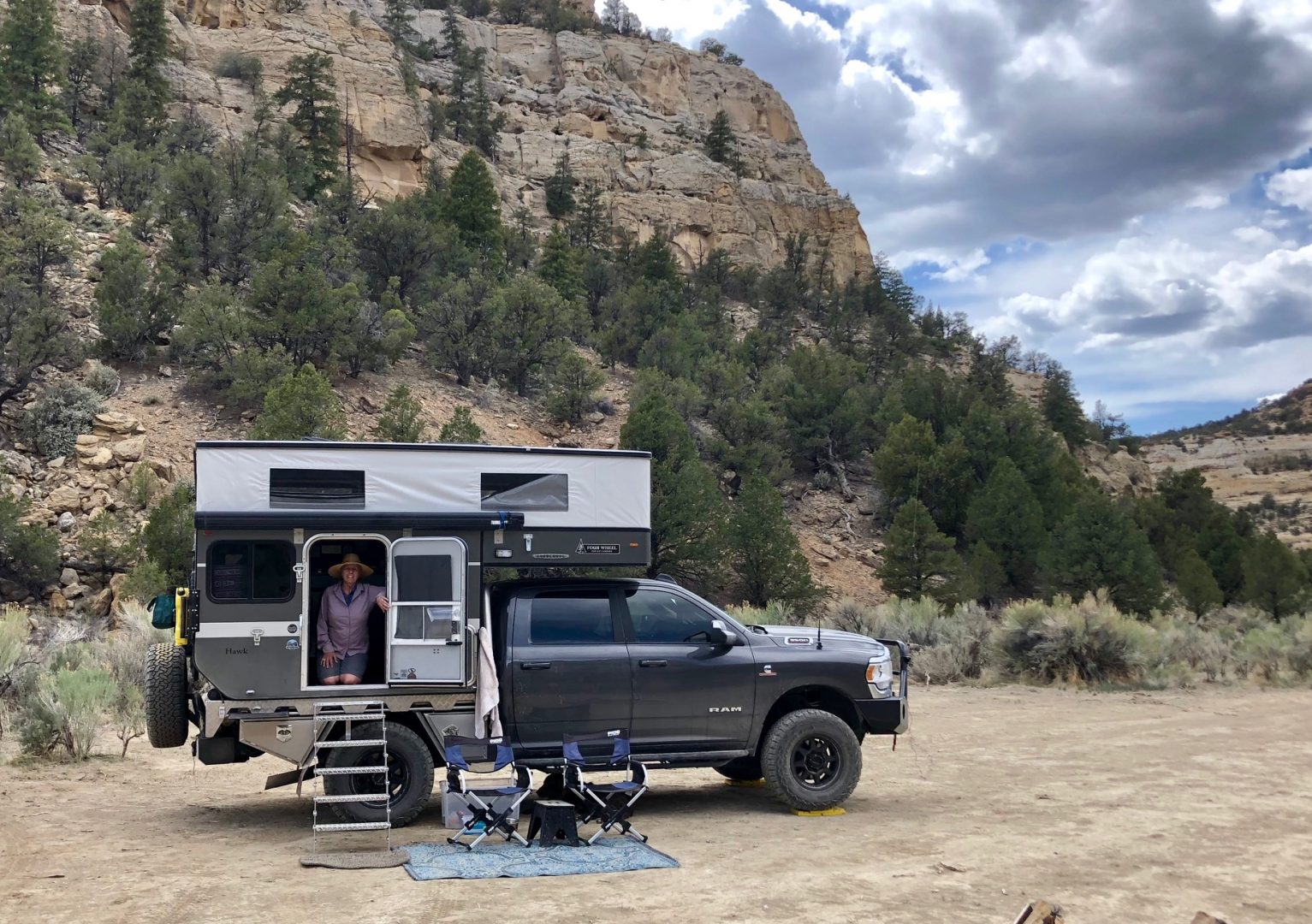
Safety Tips When Camping in Bear Country
Bears are wonderful creatures, but they are also mighty creatures. Camping in bear country is just part of life, and you’ll most likely experience it at least once, as at least 40 U.S. states are home to black bears.
Before setting up camp and grilling steaks for dinner, it’s important to understand bear safety, such as food storage, leave no trace principles, and the importance of carrying bear spray.
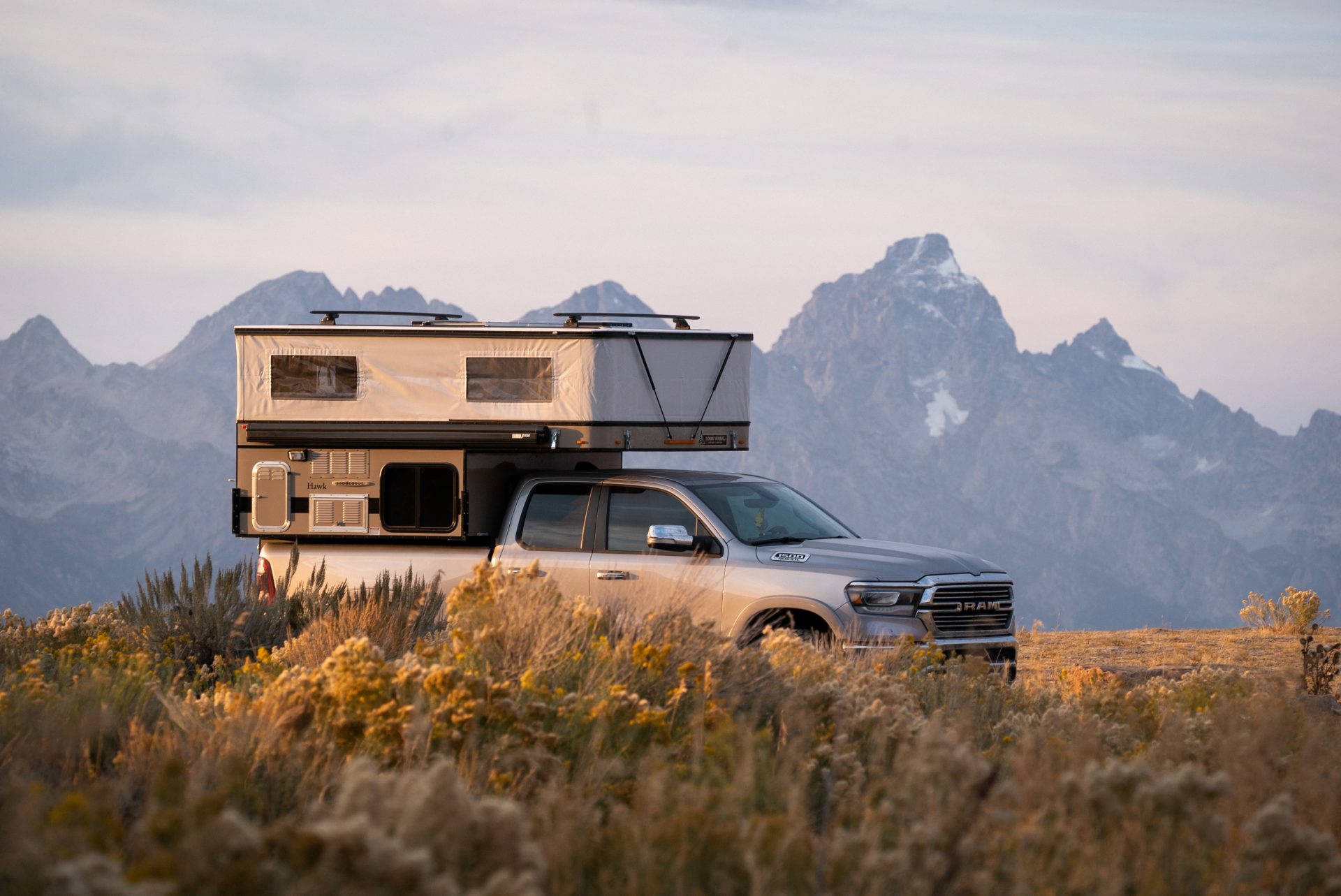
Safety Tips When Camping in Bear Country
Understanding the Difference: Black Bears vs. Brown Bears
Black Bears: Black bears are the most common species of bear in North America. Despite their name, their fur color can vary from black to brown, cinnamon, or even blonde, meaning they are often mistaken for grizzly bears. They are generally smaller in size, with an average weight of 125-500 pounds. Black bears have a varied diet, consisting of berries, nuts, grasses, insects, and occasionally scavenged carrion. They are common throughout the entire United States, from Florida to Maine to California.
Brown Bears: Brown bears, also known as grizzlies, are larger and more powerful than black bears. They have distinct shoulder humps, a concave face profile, and longer, curved claws. Brown bears are primarily found in the western regions of North America, including Alaska, parts of Canada, and a few states such as Montana, Wyoming, and northern Idaho. That means they only exist in 4 U.S. states, which should hopefully ease some nervousness! And although large and daunting, brown bears rarely seek out conflict with humans. One of our FWC owners lives in the Yellowstone Ecosystem, home to the highest concentration of grizzly bears outside of Alaska, and even she says encounters are rare (fun fact: you’re more likely to die falling into a hot spring than of a bear attack in Yellowstone). But precautions in Grizzly are no joke.
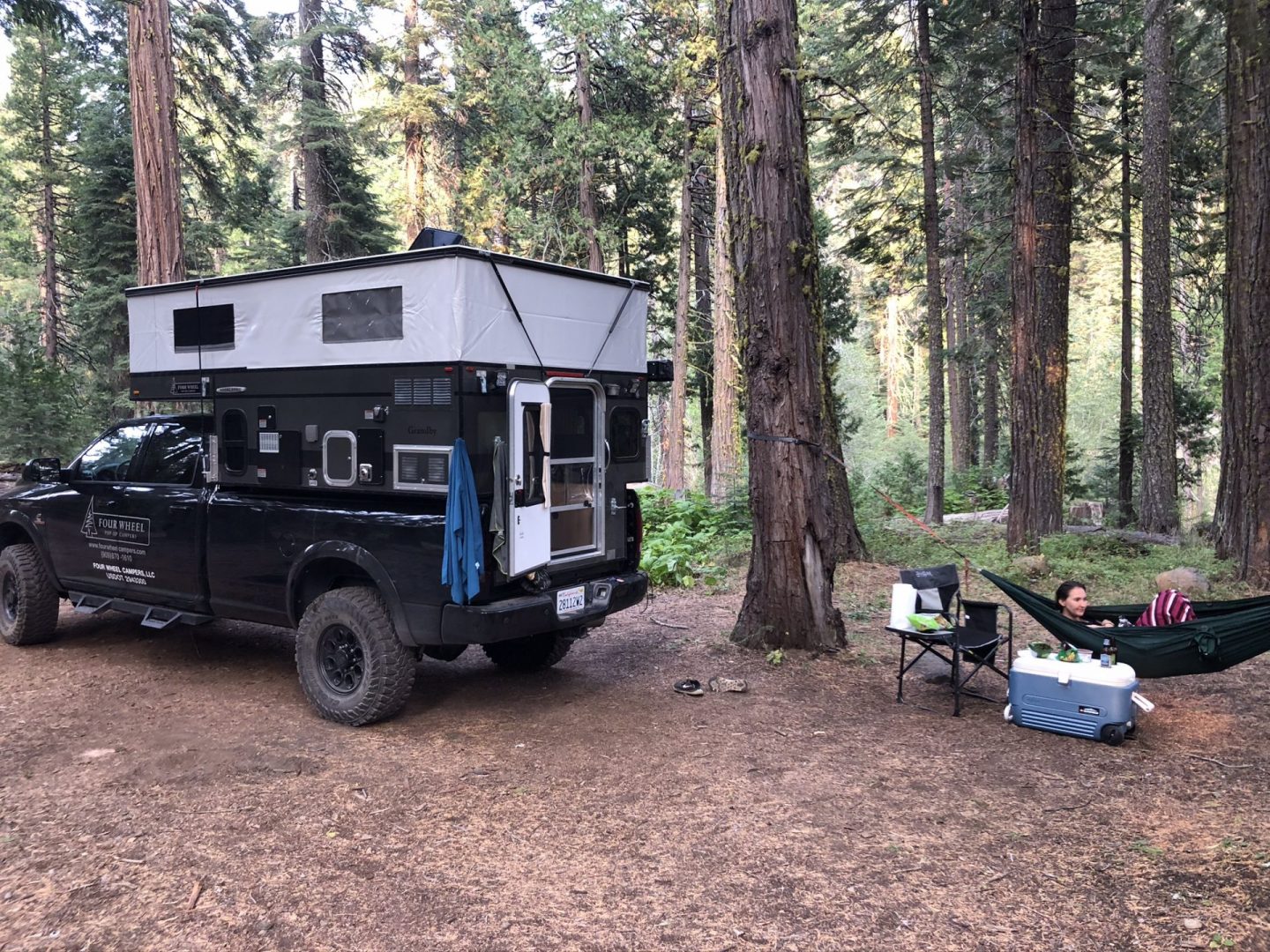
Essential Safety Measures:
- Food Storage: Proper food storage is crucial in bear country. Store all food, trash, and scented items securely in bear-resistant containers or bear lockers. Hang food at least 10 feet off the ground and 4 feet from the tree trunk if bear-resistant containers are not available. Keeping a clean campsite minimizes the chances of attracting bears. Even something as little as a toothpaste container can attract a bear!
- Leave No Trace: Practicing leave no trace principles is not only respectful to nature but also helps prevent bear encounters. Pack out all trash, dispose of waste properly, and avoid leaving any food scraps or leftovers behind. This ensures that bears do not become habituated to human food sources, reducing potential conflicts.
- Bear Spray: Carrying bear spray is an essential safety precaution when camping in bear country. Familiarize yourself with how to properly use bear spray, and have it easily accessible in case of an encounter. Be sure to carry it in a holster or a belt, as you may need to deploy it quickly.
- Campsite Selection: Choose your campsite wisely. Look for open areas with good visibility and away from natural bear attractants like berry patches or fish-bearing streams. Most importantly, avoid camping near game trails or carcasses, as these attract bears. Many areas with carcasses are closed off because of the increased risks of bears. Especially in grizzly country, notify if you come across a carcass (such as elk or moose) that has not been closed off to visitors. Also, research campsites in grizzly country before arriving. Campgrounds in active grizzly areas may not allow soft-shell camping setups, such as tents.
- Bear Awareness: Educate yourself about bear behavior, signs of bear activity, and what to do in an encounter. Be alert while hiking or exploring the surroundings, making noise to alert bears of your presence. Travel in groups whenever possible, as bears are less likely to approach larger groups. Nearly all bear attacks occur during a surprise encounter or a mother protecting her cubs. If out in bear country, make noise often to reduce the risk of a surprise encounter.
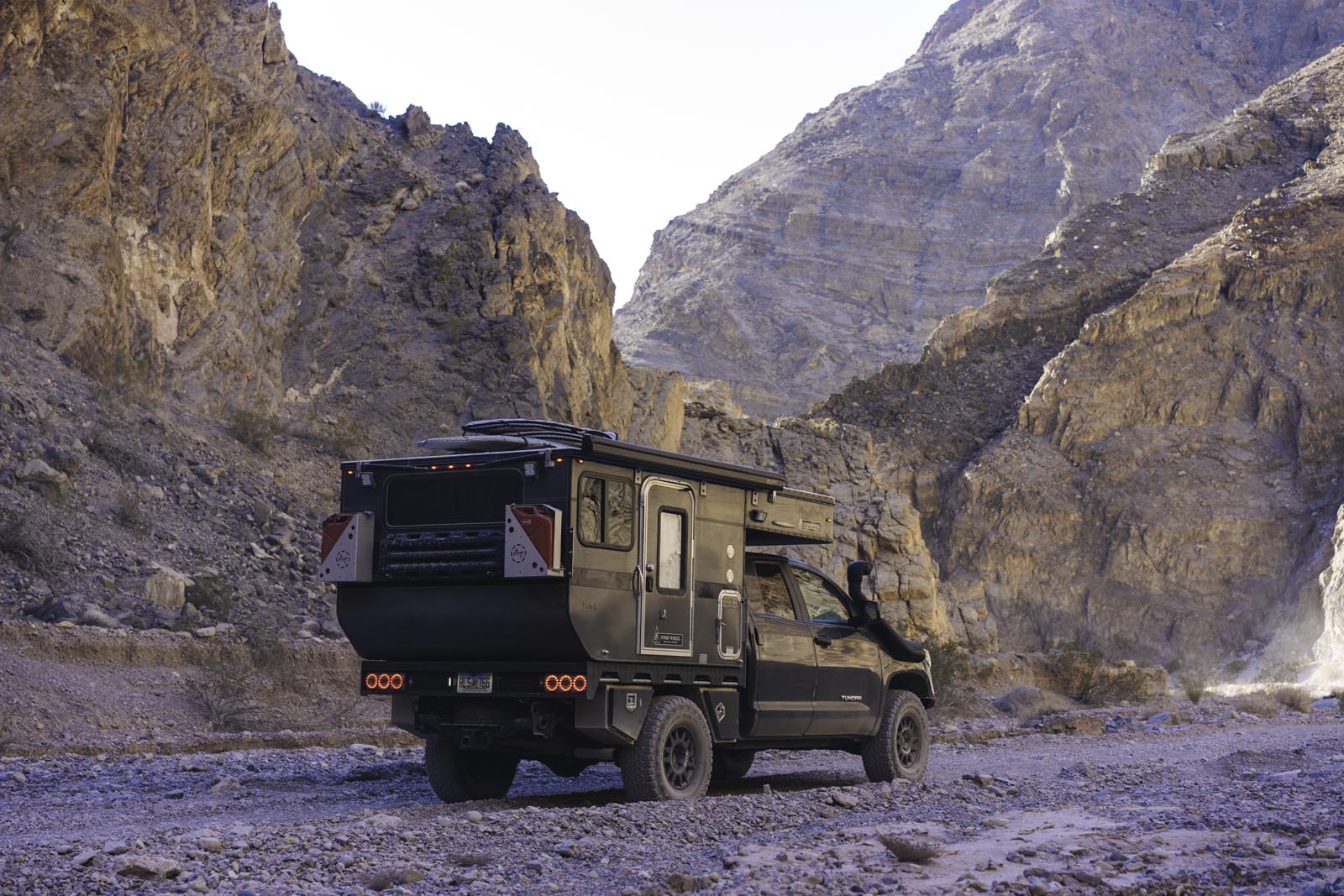
Remember, bears are friends! And encounters are rare. But respecting their territory is important. Camping in bear country offers incredible opportunities to connect with nature, but it’s essential to prioritize safety. Understanding the differences between black bears and brown bears, their respective habitats, and implementing key safety measures such as proper food storage, leave no trace practices, and carrying bear spray can significantly reduce the risk of bear encounters. Remember, respect for wildlife and responsible camping practices ensure that both humans and bears can coexist harmoniously in their natural habitats.
Want more camping tips? Visit our camping tips section on our blog!
Ready to upgrade your camping rig? Shop our truck campers!
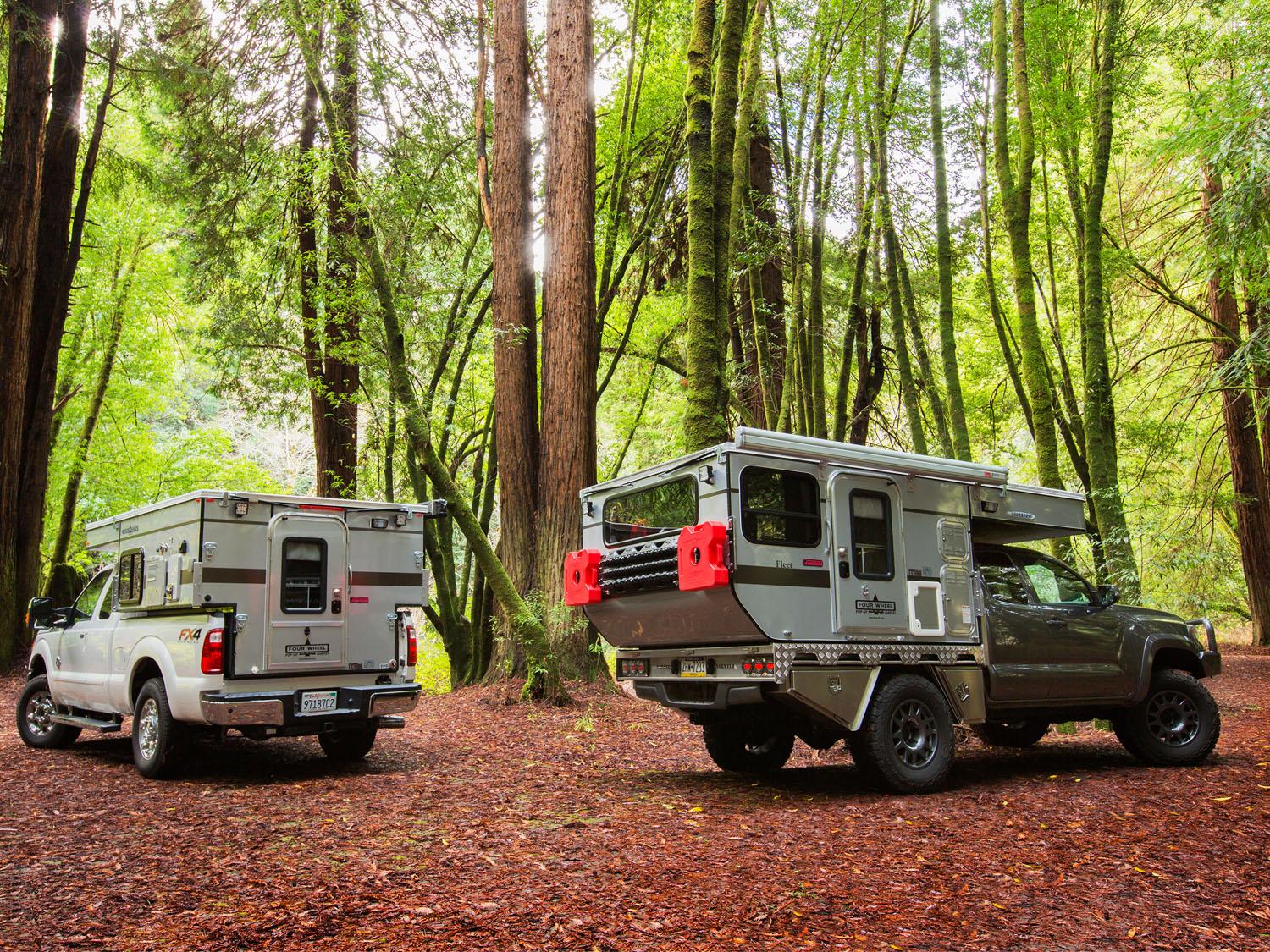
Related News
-
Why Truck Campers Are the New Full-Time Rigs
More people than ever are choosing to live full-time on the road, whether it’s a gap year from college or a retirement ...
Read More -
9 Best National Parks to Visit in The Fall
1. Yellowstone If you want to see wildlife, Old Faithful, or Grand Prismatic Spring without crowds, October is the perfect ...
Read More -
Six Best Ghost Towns in the United States
There are dozens of ghost towns across the country, from deep Appalachia to the remote Death Valley Desert. Some of the towns ...
Read More -
Best Rivers to Fly Fish in The United States
Many of those in our 4×4 camper community love to pack their fishing gear on trips. Lucky for us, there are an ...
Read More -
What to See Along Route 66: Complete Road Trip Guide
Nearly everyone has heard of the classic road trip adventure along Route 66, which stretches over 2,400 miles from Chicago to ...
Read More -
RECAP: Four Wheel Campers & Clean Up The Lake’s Volunteer Event at Fallen Leaf Lake
Four Wheel Campers’ partnership with Clean Up The Lake began in 2022, and we are pleased to share the details of our latest ...
Read More -
Things to Know Before Hitting the Road Full Time
Embarking on a full-time adventure on the open road is a dream for many. It offers the freedom to explore breathtaking ...
Read More -
The Most Affordable 4×4 Camper: The Project M Topper Camper
Embarking on off-road adventures and exploring remote destinations has never been more accessible than with a lightweight ...
Read More -
Adventures with a Ford Lightning & Truck Camper
Mario Marez Growing up in the 70s and 80s my fondest memories were taking family camping trips in my father’s 3/4 ton ...
Read More -
Four Wheel Truck Campers & Turtleback Trailer A Dynamic Duo
By Gary Matos My wife once told me that there is nothing wrong with owning two motorcycles—as long as they serve different ...
Read More

